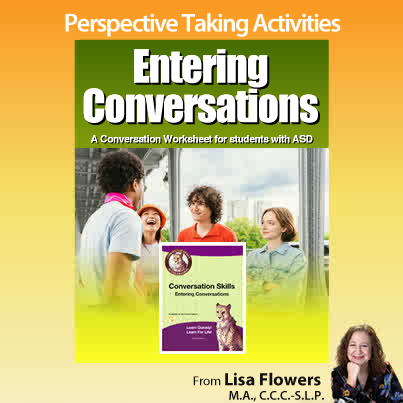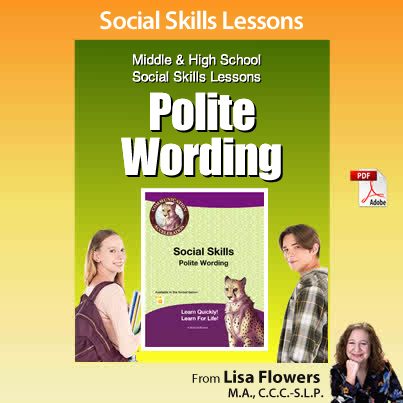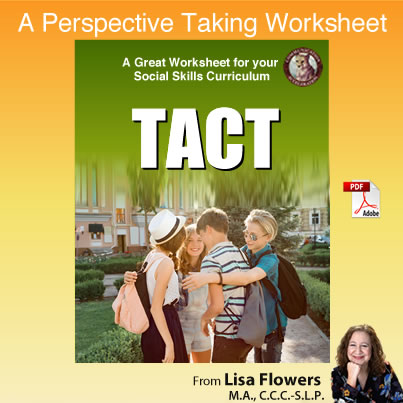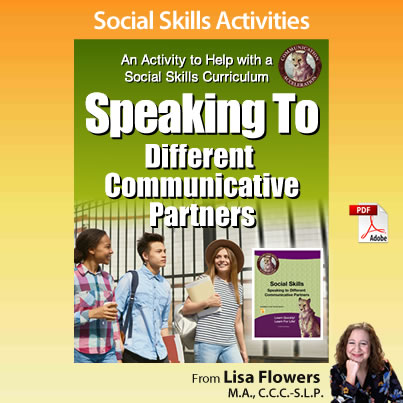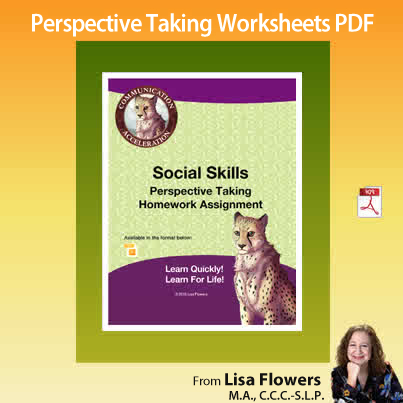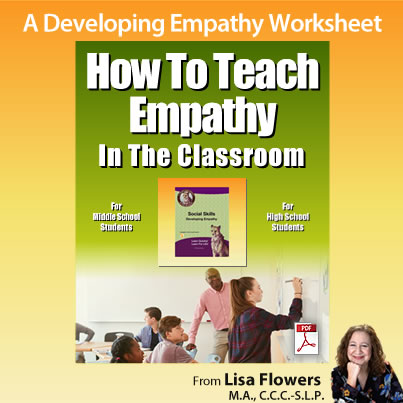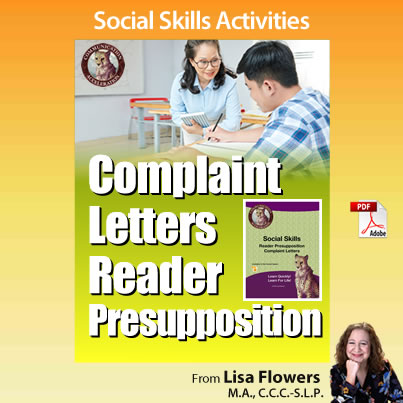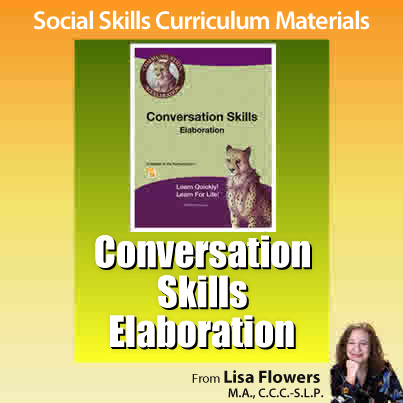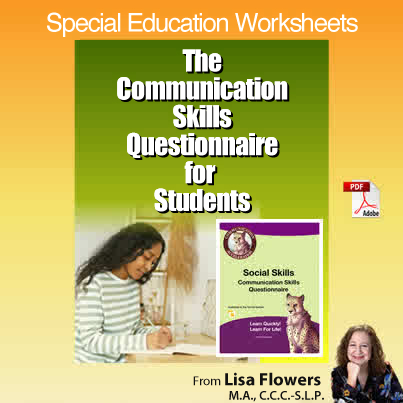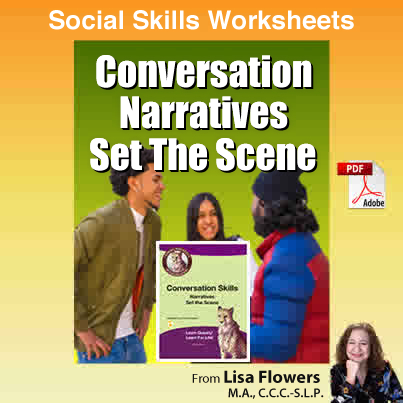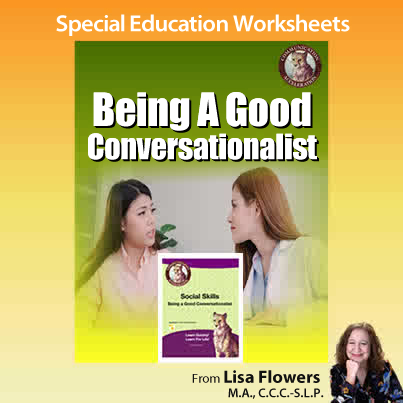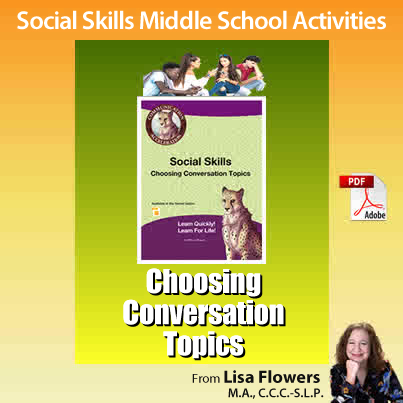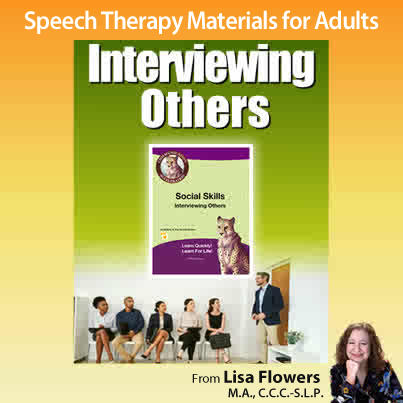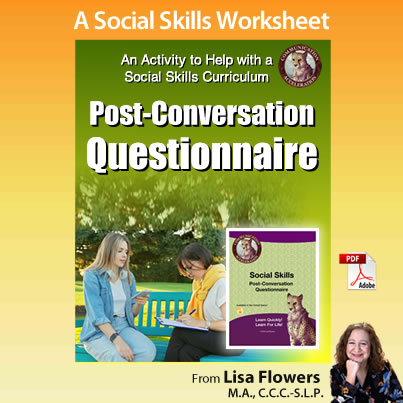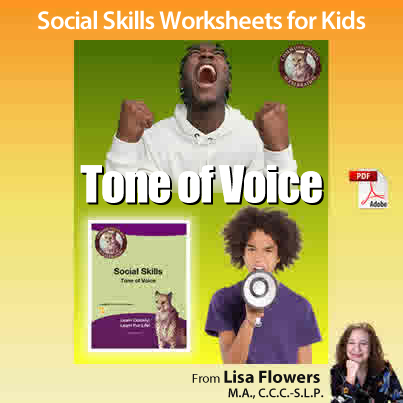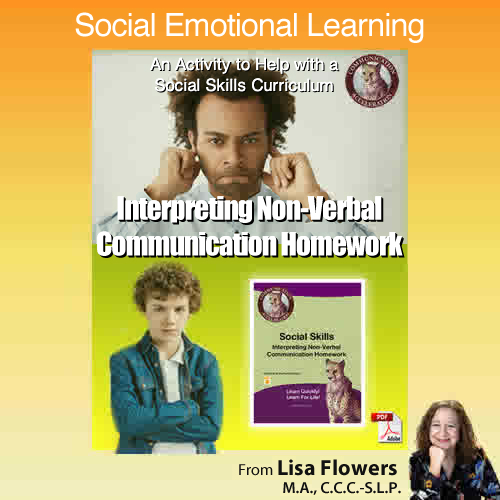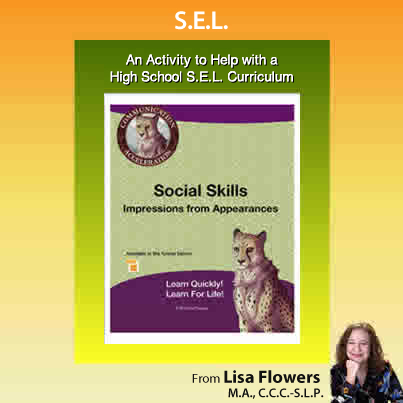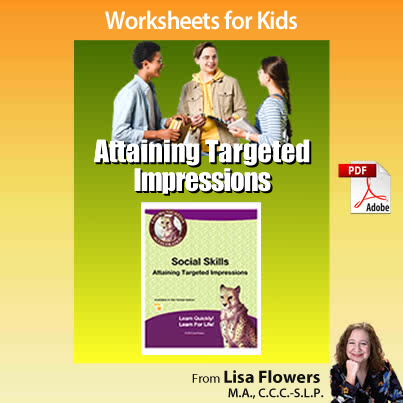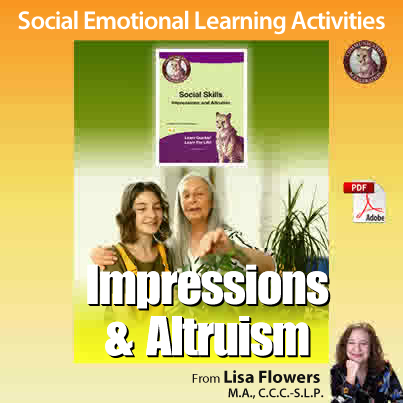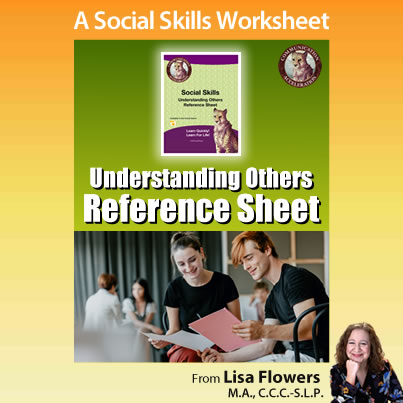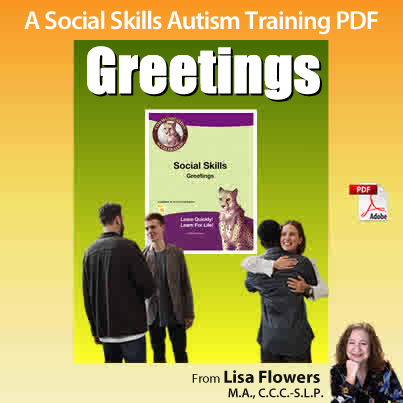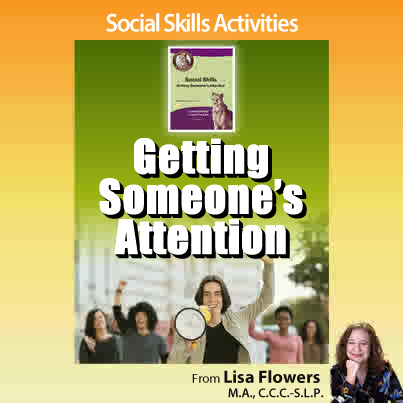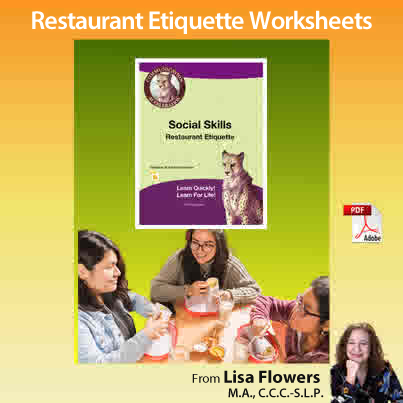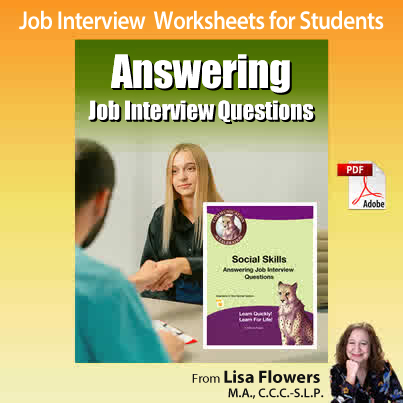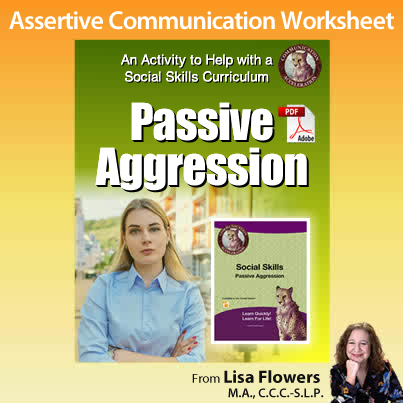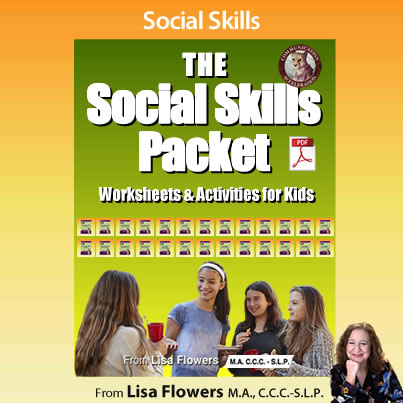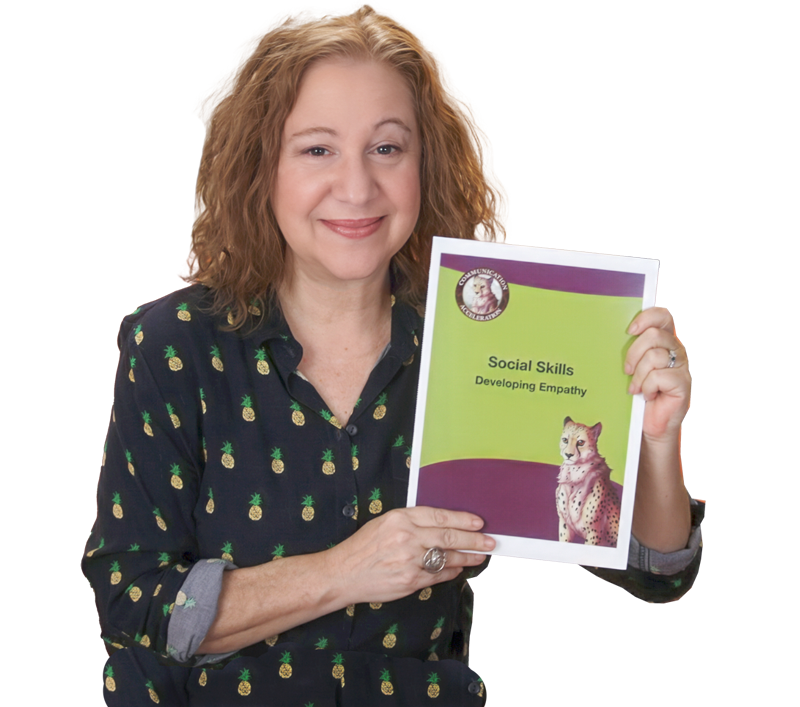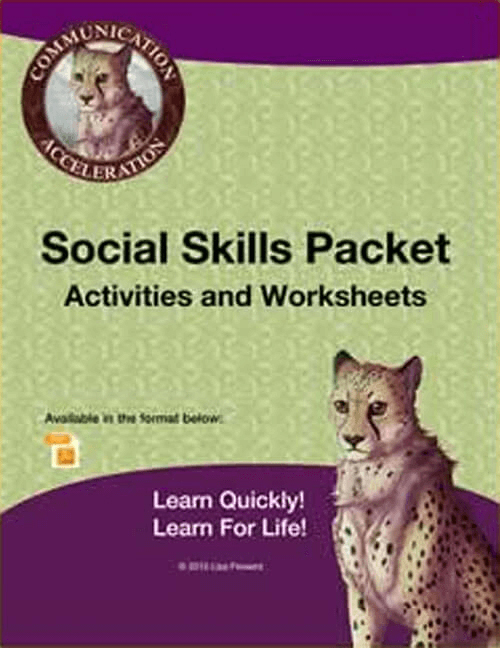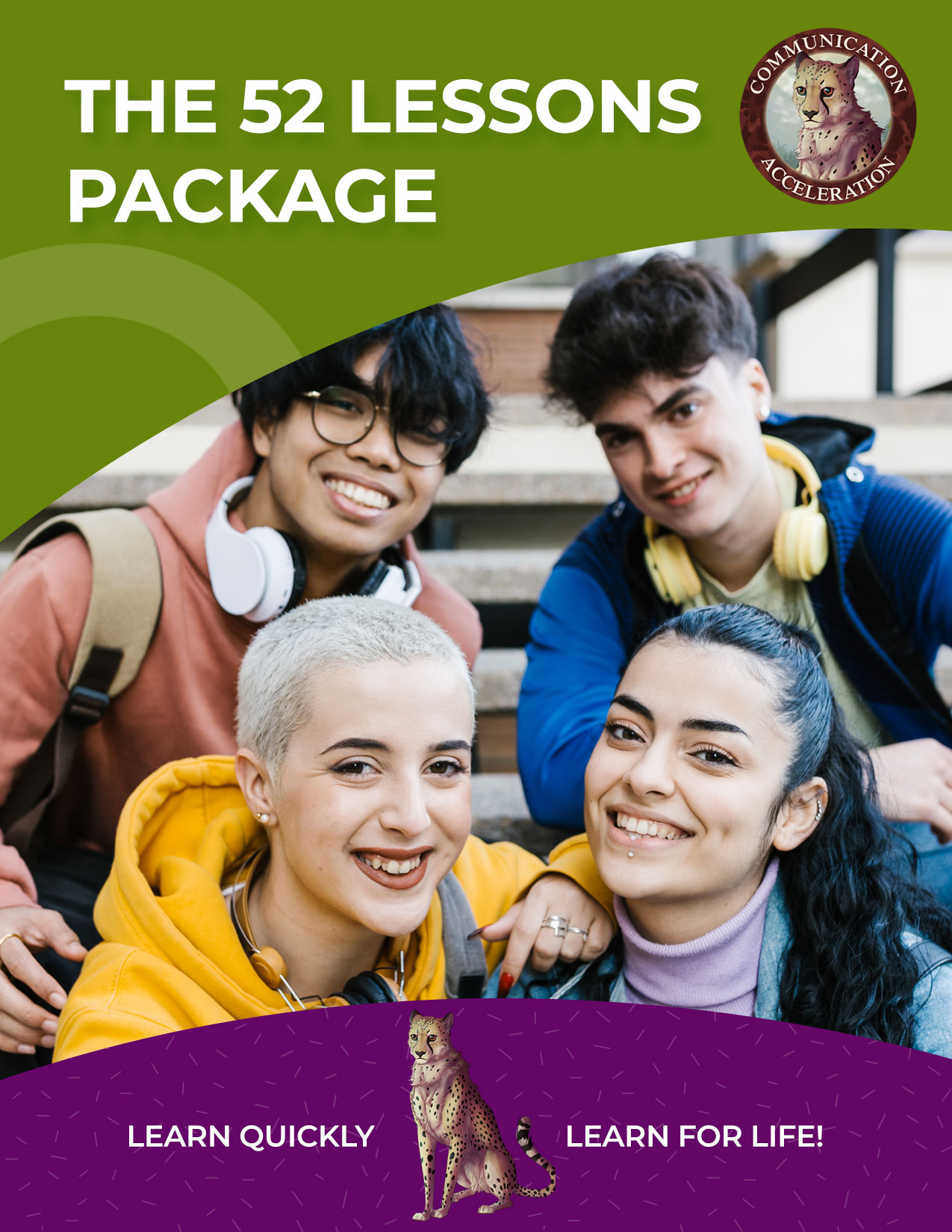How to Teach Empathy in the Classroom in PDF
S.E.L. / Empathy Worksheets
Social Skills Activities: Developing Empathy
Watch the video to learn more
Click here for video transcription and ADA compliant audio for the video above
Developing Empathy
This comprehensive resource works directly on teaching empathy, a cornerstone of healthy social relationships. You'll find extensive discussion and definitions, along with an activity that tasks students with looking out for others' feelings.
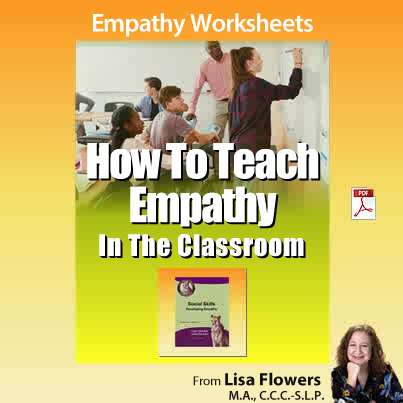
Social Skills Activities: Developing Empathy
Understanding beliefs, desires, intentions, and perspectives of others is always a difficult aptitude to master for individuals on the autism spectrum.
This activity (including therapeutic notes on how to most effectively use the materials along with modification suggestions) is highly effective at utilizing conversational practice in order to develop empathy and improve perspective-taking skills. Beginning with a comprehensive discussion regarding the vitality of empathy, the activity then explains the terms "conversational participation", "mood", "social distress", and "spatial inclusion". Students can subsequently practice determination of others’ perspectives and social observation by employing the handout intended for use in sessions. They can now learn to generalize by practicing with the homework handout in real-world situations.
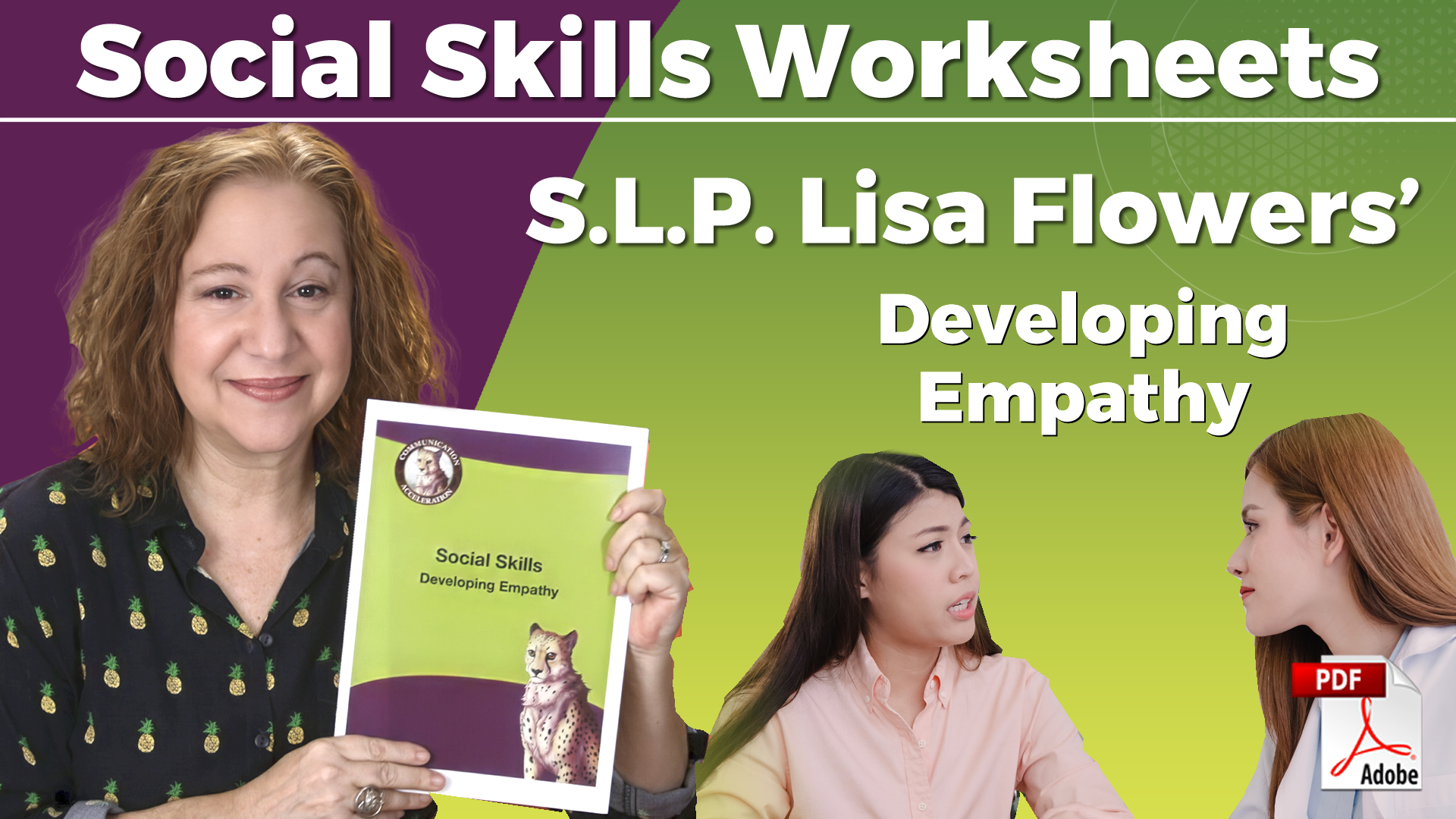

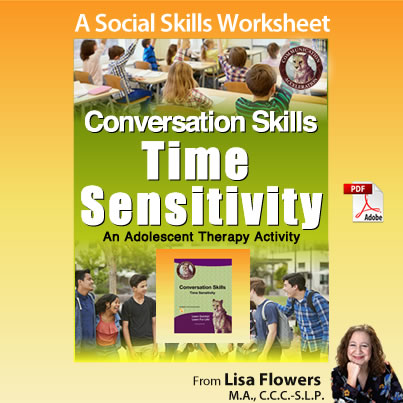 ">
">
